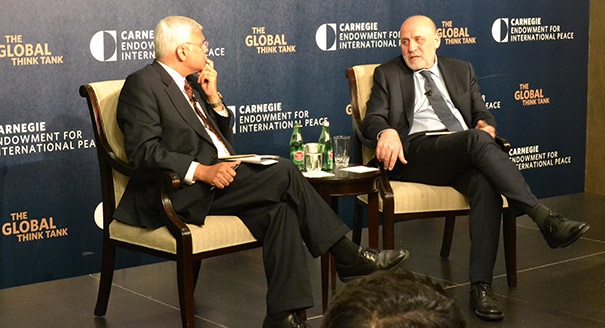Registration
You will receive an email confirming your registration.
Although President Barack Obama has extended U.S. military presence in Afghanistan, stability in the conflict-torn nation is elusive and close to one and a half decades of Afghan and international investment are at risk. The Strategic Partnership Agreement (SPA) and Bilateral Security and Defense Agreement (BDSA) with the United States, both widely endorsed by Afghans, were intended to improve stability and increase public confidence. But despite these agreements, the challenges of entrenched Taliban terror have increased, and are now complemented by the entry of the self-proclaimed Islamic State to the region and the increasing exodus of Afghanistan’s educated youth. Can Afghanistan survive its increasing troubles?
Mohammad Umer Daudzai, former two-time chief of staff to the president of Afghanistan and minister of interior affairs during the crucial transition year 2014, reflected on the prospects for Afghanistan’s future. Having served as ambassador and presidential envoy to two of Afghanistan’s important neighbors, Pakistan and Iran, Daudzai also addressed the regional dimension of Afghanistan’s struggle for security.
Mohammad Umer Daudzai
Mohammad Umer Daudzai is an Afghan politician who most recently served as minister for interior affairs from 2013 to 2014. He was previously chief of staff to the president of Afghanistan for two terms, as well as Afghanistan’s ambassador to the Islamic Republic of Iran and the Islamic Republic of Pakistan.
Ashley J. Tellis
Ashley J. Tellis is a senior associate at the Carnegie Endowment for International Peace specializing in international security, defense, and Asian strategic issues.
